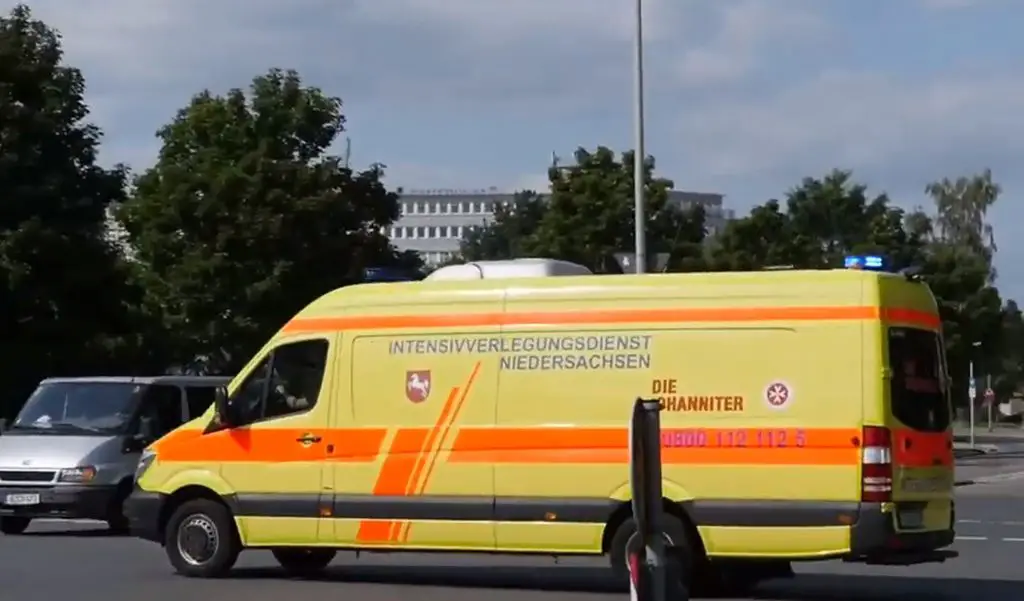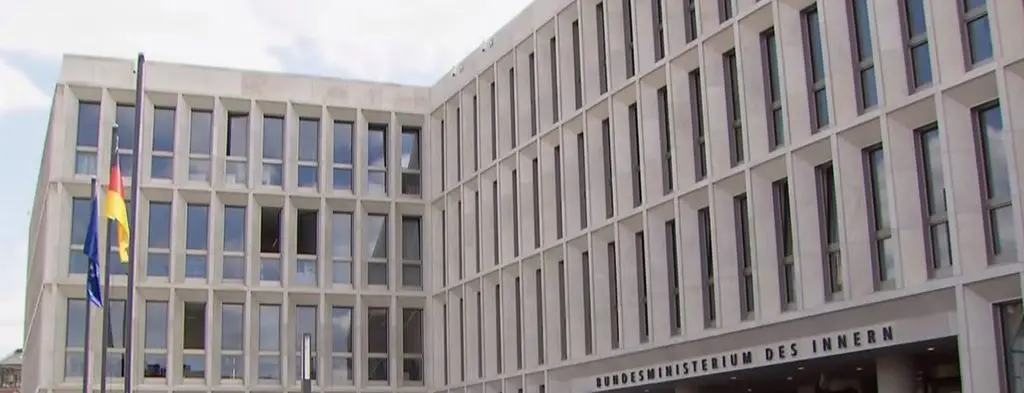German officials have warned that there could be over a million deaths in the country and a meltdown resulting in ‘anarchy’ if the current lockdown procedures fail to slow the spread of the virus.
And even if the spread of the virus were to continue to slow, it could still reportedly kill 220,000 people in Germany over the next seven months.
The statistics were included in the paper published by online investigations portal fragdenstaat (Ask The State) which was then authenticated and repeated by respected German media like the news magazine Focus.

Newsflash 
Newsflash
It was based on an analysis by the Robert Koch Institute (a German federal government agency responsible for disease control) and other experts and comes as Chancellor Angela Merkel, recently released from quarantine, dampened hopes of an early exit from the lockdown as the coronavirus pandemic sweeps the country.
The Interior Ministry’s (BMI) more detailed analysis, which was published in the paper, warns it is too early to say that the country is out of the crisis, and the restrictions will need to continue.
Interior Minister Horst Seehofer (CSU) and his State Secretary Markus Kerber said the most likely scenario was that after the Easter holidays they would move to the second stage, which would see opening of schools and kindergartens and a gradual reduction in the restrictions on public life in order to “reactivate as quickly as possible the consumer area.”
They said that business activities that could increase again would be the work of auditors and tax advisers and other business related services through to more general public services like garages.
The aim of the strategy is reportedly to double the number of people infected in order to slow the spread of the disease because people that have been infected and survive will be immune, and will therefore no longer be carriers.
The strategy is based on the South Korean model, which Germany wants to copy, and which will involve massively increasing the number of tests in order to quickly identify people at risk and isolating them to prevent them further infecting anybody else – slowing the spread.
That means the number of tests countrywide needs to increase to around 200,000 a day – which represents 1.4 million a week.
Regional politicians indicate they are on track to meet this target, and warn of the possible disastrous consequences should they fail to slow the growth including a collapse of the economic, social and health systems.
In the paper, the BMI experts warn that the country currently has 975 clinics, that according to the German Interdisciplinary Association for Intensive Care and Emergency Medicine (DIVI), currently have around 20,000 intensive care beds available now.
At the moment, 8,500 of these are free and could be made available immediately for coronavirus patients. In emergency situations, the German healthcare system can be further adapted to double the number of intensive care beds available to 40,000.
But the BMI experts warn that in their worst-case scenario, where the number of infections continues to double every nine days, this is far from enough, and that it would result in a “massive overload of the healthcare system” which will result in 80 percent of the “intensive care patients having to be rejected by the hospitals”. This would result in 1.2 million deaths as the most likely outcome.
This can only be avoided if they can slow down the infection rate by mid-April, which would reduce the number of intensive care patients that could not be treated to 15 percent, with one in five Germans affected. The BMI estimates that in this case, the death toll would be 220,000 with the emergency measures remaining in place to some extent for at least seven months.
The BMI experts warn of both the economic and social consequences if the pandemic is not properly tackled. They warn of a “core meltdown” of the entire system as a result of the pandemic. The result would be a world completely different to the one that we know now with entirely new levels of normality or worse, “anarchy”.
They wrote: “Should the measures proposed here fail to contain and control the COVID-19 epidemic, then the entire system could face a ‘meltdown’. This will result in a fundamental change in society reducing it to a completely different basic level or even down to anarchy.”
It continues: “For this reason, the strategy of containment, which dominates all other considerations, must be combined with measures to keep the economic consequences as low as possible.”
The report also says that the financial crisis is likely to be far more severe, offering several scenarios.
They say that if the lockdown continues with the ban on social contact, by the end of the Easter holidays the number of infections could be significantly reduced.
This would in turn allow schools and nurseries to reopen, parents to work again from home and factories to start the process of getting back to work by fixing supply chain problems. Virus testing however would need to continue intensively. Under this scenario it will take two months for companies to get back to work smoothly. Three months would be necessary to compensate for the lost economic output.
The best case scenario would be that the gross national product would drop by four percent and industry would lose nine percent with the state budget suffering a cost of 80 billion EUR (70.2 billion GBP).
The alternative scenario is that there is a second wave, probably starting at the end of the year, resulting in a repeat of the lockdown including a ban on visiting old people’s homes and with people being forced into short-term or no work scenarios.
This would mean an 11-percent drop for the economy in 2020 and a 19-percent loss in sales for the country’s industry. That would be significantly worse than the financial sector crash from 11 years ago.
They add that if the ban on contact and lockdown restrictions continue countrywide until the beginning of the summer holidays in mid-July, even more cuts are to be feared.
The BMI adds that a lockdown lasting until the end of the year would result in economic collapse, where the “social and political consequences of which are hard to imagine”. GDP would fall by 32 percent and industry would lose up to half of its sales.
This would likely result in a wave of protests across the country against the measures, with the report adding: “It is likely that the treatment of the sick will be questioned” rather than people accepting the country’s permanent standstill as the alternative.
In conclusion, the Interior Ministry have approved a massive increase in the amount of tests including the setting up of mobile testing stations, a more efficient identification of people at risk and their isolation, and the application of big data through the use of digital monitoring of people’s mobile telephones in order to enable virus tracking.
They warn of the enormous benefits they could bring if the plan works, and the unthinkable consequences should it fail.
The ViralTab page is created by and dedicated to professional, independent freelance journalists. It is a place for us to showcase our work. When our news is sold to our media partners, we will include the link here.



